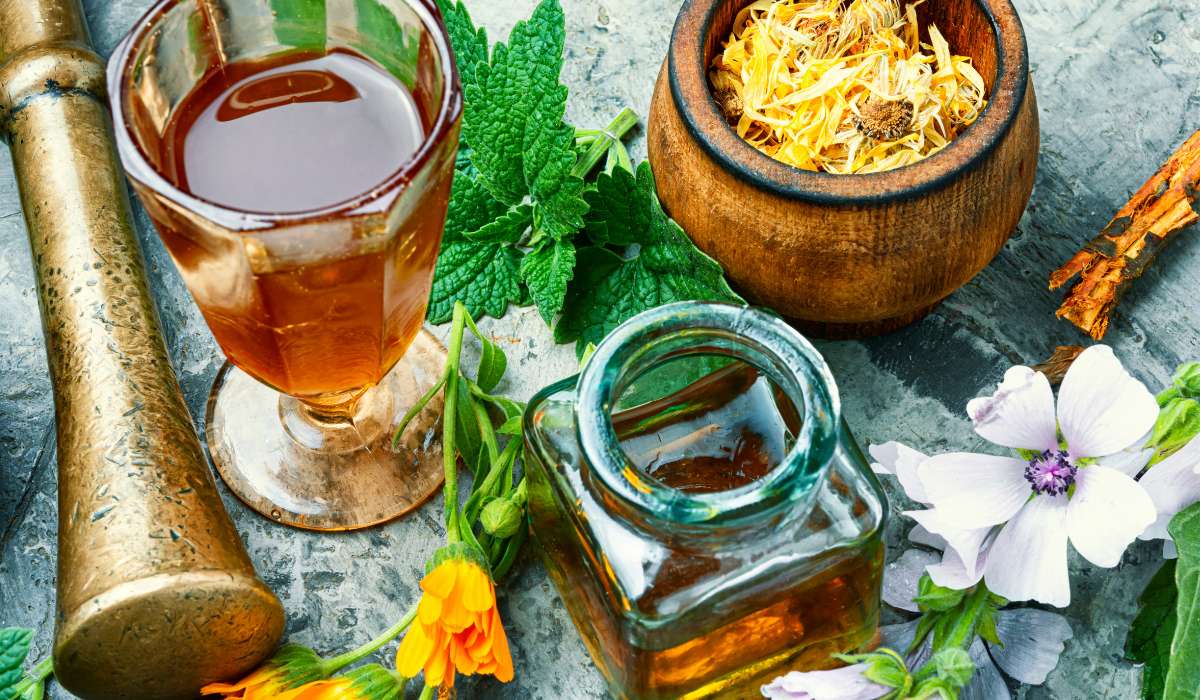Introduction to Natural Herbal Cures: Natural Herbal Cures For Psoriasis And Other Skin Conditions

For centuries, humankind has relied on the healing power of plants to treat a wide array of ailments, including skin conditions like psoriasis. Herbal remedies represent a rich tapestry of traditional medical practices passed down through generations, offering alternative approaches to modern medicine. Understanding their historical context and potential benefits is crucial for anyone considering these treatments.
Herbal remedies for skin conditions have been used across diverse cultures and geographical locations. Ancient Egyptian papyri detail the use of various plant extracts for skin ailments. Traditional Chinese Medicine (TCM) incorporates numerous herbs, often in complex formulations, to address imbalances believed to cause skin diseases. Similarly, Ayurvedic medicine in India utilizes a vast pharmacopoeia of plants for skin health. These practices often involve topical applications of herbal pastes, oils, or decoctions, and sometimes incorporate internal herbal preparations to support overall health and address underlying factors contributing to skin problems. Examples include the use of aloe vera for its soothing and anti-inflammatory properties, turmeric for its anti-inflammatory and antioxidant effects, and chamomile for its calming influence on irritated skin.
Potential Benefits and Limitations of Natural Herbal Cures
Natural herbal cures offer several potential advantages. Many herbs possess anti-inflammatory, antimicrobial, and antioxidant properties that can help alleviate symptoms associated with psoriasis and other skin conditions. They may also be less likely to cause certain side effects compared to some conventional treatments. However, it’s crucial to acknowledge limitations. The efficacy of herbal remedies can vary significantly depending on factors such as the quality of the herb, the preparation method, and individual patient response. Scientific evidence supporting the effectiveness of many herbal treatments for psoriasis is often limited to small-scale studies or anecdotal evidence. Furthermore, the lack of standardization in herbal preparations can make it difficult to ensure consistent quality and dosage. Finally, herbal remedies may interact with other medications, and individuals should always consult with a healthcare professional before incorporating them into their treatment plan, especially if they have pre-existing health conditions or are taking other medications. This careful approach is vital to ensure safe and effective use.
Scientific Evidence and Research

While the use of herbal remedies for skin conditions like psoriasis has a long history, scientific evidence supporting their efficacy is still developing. Many studies are preliminary, focusing on specific compounds or extracts rather than whole plant preparations. Understanding the scientific basis behind these remedies is crucial for safe and effective use.
The efficacy of herbal remedies in treating psoriasis and other skin conditions is a complex area. Research methodologies vary, making direct comparisons challenging. Furthermore, the composition of herbal products can differ significantly, influencing the reproducibility of results. This necessitates rigorous standardization and quality control within the herbal medicine field.
Studies Supporting Herbal Efficacy
Several studies have shown promising results for specific herbs. For instance, research suggests that *Aloe vera* gel possesses anti-inflammatory and wound-healing properties, potentially beneficial for psoriasis. Studies have shown reduced inflammation and improved skin hydration in psoriasis patients using *Aloe vera*. Another example is *Calendula*, whose extracts have demonstrated antimicrobial and anti-inflammatory activities, potentially aiding in the management of skin infections often associated with psoriasis. However, these studies often have limitations, including small sample sizes and lack of long-term follow-up.
Mechanisms of Action
Many herbal compounds exert their therapeutic effects through various mechanisms. For example, some possess anti-inflammatory properties by inhibiting the production of pro-inflammatory cytokines like TNF-α and IL-6, key players in the inflammatory cascade of psoriasis. Others demonstrate antioxidant activity, protecting skin cells from damage caused by free radicals. Certain herbal compounds may also modulate the immune system, reducing the overactive immune response characteristic of psoriasis. The exact mechanisms often remain unclear and require further investigation.
Limitations and Inconsistencies in Research
Current research on herbal remedies for skin ailments faces several limitations. Many studies are small-scale, lacking the statistical power to draw definitive conclusions. The heterogeneity of herbal products, variations in preparation methods, and the lack of standardized protocols further complicate the interpretation of results. Furthermore, the absence of rigorous double-blind, placebo-controlled trials limits the strength of evidence. This makes it challenging to definitively establish the efficacy and safety of these remedies.
Ongoing Research in Herbal Dermatology
Significant ongoing research explores the potential of herbal medicine in dermatology. Researchers are investigating the active compounds in various herbs, aiming to identify the specific molecules responsible for their therapeutic effects. This knowledge will allow for the development of standardized, high-quality herbal products with predictable efficacy and safety. Studies are also focusing on developing novel drug delivery systems for herbal compounds to enhance their penetration into the skin and improve therapeutic outcomes. Furthermore, researchers are exploring the synergistic effects of combining herbal remedies with conventional treatments for psoriasis and other skin conditions.
Potential Side Effects and Precautions
While natural herbal remedies offer a promising approach to managing psoriasis and other skin conditions, it’s crucial to understand that they are not without potential risks. Like any treatment, herbal remedies can trigger adverse reactions, and their effectiveness varies from person to person. Therefore, a cautious and informed approach is essential to ensure safe and effective use.
It is vital to remember that the information provided here is for educational purposes only and should not be considered medical advice. Always consult with a qualified healthcare professional before starting any new herbal treatment, especially if you have pre-existing health conditions or are taking other medications.
Allergic Reactions and Adverse Effects
Certain herbs can cause allergic reactions in susceptible individuals. For instance, some people may experience skin rashes, itching, or swelling after applying topical herbal preparations containing ingredients like chamomile or calendula, even though these are generally considered safe. Similarly, oral ingestion of certain herbs, such as St. John’s Wort, can trigger allergic reactions in some people, manifesting as digestive upset, headaches, or skin reactions. The severity of allergic reactions can range from mild discomfort to serious, life-threatening conditions like anaphylaxis. Therefore, it’s crucial to perform a patch test on a small area of skin before applying any herbal remedy topically and to start with a low dose when taking herbs orally.
Importance of Consulting a Healthcare Professional
Consulting a healthcare professional before using herbal remedies is paramount. A doctor or qualified herbalist can assess your individual health status, identify potential drug interactions, and advise on appropriate dosages and usage. They can also help you differentiate between symptoms of psoriasis and other skin conditions and guide you towards the most suitable treatment plan, whether it involves herbal remedies, conventional medicine, or a combination of both. This is particularly crucial if you have a history of allergies, are pregnant or breastfeeding, or are taking other medications. Ignoring this advice could lead to adverse effects or ineffective treatment.
Precautions When Using Herbal Remedies Alongside Conventional Medications
Many herbs interact with conventional medications. For example, St. John’s Wort, often used for mood disorders, can interact with numerous medications, including birth control pills, antidepressants, and blood thinners. Similarly, some herbs can affect liver function, potentially interfering with the metabolism of other drugs. This could lead to either a decreased or increased effectiveness of the conventional medication or increased risk of side effects. It’s crucial to inform your doctor about all herbal remedies you are using to avoid potentially harmful interactions.
Herbs to Avoid During Pregnancy or Breastfeeding
Several herbs are contraindicated during pregnancy and breastfeeding due to their potential effects on the developing fetus or nursing infant. These include, but are not limited to, mugwort, pennyroyal, and yarrow, which have been associated with uterine contractions or other adverse effects. Others, like St. John’s Wort, can pass into breast milk and may affect the infant. Always consult with your doctor or a qualified healthcare professional before using any herbal remedies if you are pregnant or breastfeeding to ensure the safety of both yourself and your child. They can provide guidance on safe alternatives or suggest suitable conventional treatments.
Case Studies and Personal Experiences (Illustrative, not clinical)

This section presents hypothetical case studies and personal experiences to illustrate the potential benefits and drawbacks of using natural herbal remedies for skin conditions like psoriasis and eczema. It is crucial to remember that these are not clinical trials and individual results may vary significantly. Always consult a healthcare professional before starting any new treatment.
Hypothetical Case Study: Mild Psoriasis
A 35-year-old individual experienced mild psoriasis primarily on their elbows and knees, characterized by small, red, scaly patches. After consulting with a naturopathic practitioner, they began using a topical cream containing aloe vera, calendula, and chamomile extracts. Over a period of eight weeks, they reported a gradual reduction in the redness and scaling, with a noticeable improvement in skin texture and itching. The individual also incorporated a diet rich in omega-3 fatty acids and reduced their stress levels, believing these factors contributed to the positive outcome. While their psoriasis wasn’t completely cleared, they experienced significant relief and improved quality of life.
Hypothetical Personal Experience: Eczema
A 20-year-old individual with chronic eczema affecting their hands and face experimented with various herbal remedies. They found that applying a mixture of diluted tea tree oil and coconut oil twice daily provided some relief from the intense itching and dryness. They also prepared soothing compresses using chamomile tea bags, which they applied to their affected areas for 15-20 minutes at a time. While the eczema didn’t disappear entirely, the individual reported a reduction in inflammation and improved skin hydration. They also noted that flare-ups were less frequent and severe compared to when they used only conventional treatments.
Potential Benefits and Drawbacks from a Hypothetical Patient Perspective, Natural herbal cures for psoriasis and other skin conditions
It’s important to understand that individual experiences with herbal remedies for skin conditions can vary widely. The following list Artikels potential benefits and drawbacks based on hypothetical patient perspectives.
Natural herbal cures for psoriasis and other skin conditions – Potential Benefits:
- Reduced itching and inflammation.
- Improved skin hydration and texture.
- Less frequent and less severe flare-ups.
- A sense of greater control over their skin condition.
- Avoidance of harsh chemicals found in some conventional treatments.
Potential Drawbacks:
- Treatment may not be effective for all individuals.
- Results may be gradual and require consistent application.
- Potential for allergic reactions to certain herbs.
- Some herbs may interact with other medications.
- Lack of standardized quality control for herbal products.